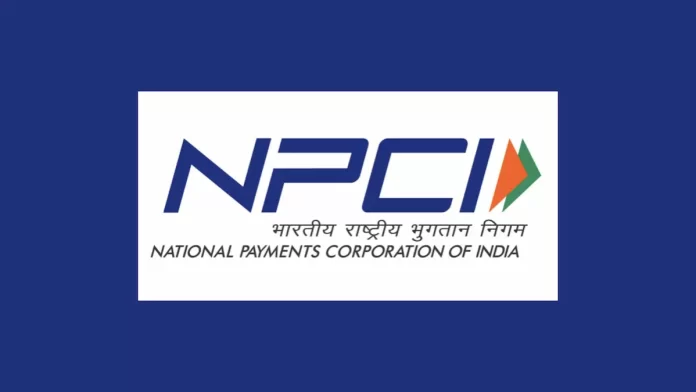The National Payments Corporation of India (NPCI) is a pivotal organization that has been instrumental in transforming the payment ecosystem of the country.
Established in 2008, NPCI operates as a not-for-profit entity under the guidance of the Reserve Bank of India (RBI) and the Indian Banks’ Association (IBA).
With a mission to provide efficient, accessible, and affordable digital payment solutions, NPCI has played a pivotal role in driving financial inclusion and shaping India’s journey towards a cashless economy.
Genesis and Objective
The establishment of NPCI marked a crucial juncture in India’s financial history. Prior to its inception, the payment landscape in the country was predominantly paper-based and cash-centric.
Recognizing the need for a modern, secure, and interoperable payment system, NPCI was formed to create a platform that would enable seamless, real-time electronic fund transfers and payments.
Its primary objective is to build and operate payment and settlement systems that are robust, scalable, and inclusive.
Key Initiatives
NPCI has introduced several groundbreaking initiatives that have revolutionized the way payments are conducted in India:
- Unified Payments Interface (UPI): UPI, launched in 2016, is one of NPCI’s most transformative innovations. It enables instant money transfers between bank accounts using mobile devices with 24/7 availability. UPI has not only simplified peer-to-peer transactions but has also facilitated merchant payments and bill settlements through a single interface. Its open architecture has led to the proliferation of third-party apps offering UPI-based services.
- BHIM App: The Bharat Interface for Money (BHIM) app was launched to promote UPI-based transactions. It offers a simplified user interface for secure and convenient fund transfers. BHIM has contributed significantly to boosting digital payments adoption across urban and rural areas.
- RuPay Card: In a bid to reduce the dependency on international card networks, NPCI introduced the RuPay card in 2012. This domestic card payment scheme offers a cost-effective alternative to global card networks, making electronic payments more affordable for merchants and users alike.
- National Automated Clearing House (NACH): NACH, introduced by NPCI in 2010, streamlines bulk transactions such as recurring payments, dividends, and government subsidies. It ensures the timely and secure transfer of funds between bank accounts across the country.
- Immediate Payment Service (IMPS): IMPS is a real-time interbank electronic funds transfer system that enables instant fund transfers on a 24×7 basis. It has been a crucial tool for enabling quick transactions, particularly for emergencies and time-sensitive payments.
- Aadhaar Enabled Payment System (AePS): NPCI leveraged the Aadhaar biometric identification system to develop AePS, allowing individuals to access financial services using their Aadhaar number and fingerprint verification. This initiative has been instrumental in bringing unbanked and underbanked populations into the formal financial system.
Security and Innovation
NPCI places a strong emphasis on security and innovation to ensure the integrity of its payment systems:
- Two-factor Authentication: Most NPCI systems employ a two-factor authentication process, requiring users to provide two independent forms of identification before transactions can be authorized. This enhances the security of digital transactions.
- Encryption and Secure Protocols: Robust encryption techniques and secure communication protocols are employed to protect sensitive data during transmission, safeguarding users against cyber threats and data breaches.
- Continuous Monitoring: NPCI’s systems are subject to rigorous monitoring and security audits to identify and address vulnerabilities. This proactive approach ensures the detection and prevention of potential threats.
- Innovation Labs: NPCI has established innovation labs to foster the development of cutting-edge technologies in the payment space. These labs collaborate with fintech startups and industry experts to explore new solutions and enhance the payment experience.
Impact and Reach
NPCI’s initiatives have had a profound impact on India’s payment landscape:
- Financial Inclusion: Through initiatives like UPI and AePS, NPCI has played a critical role in bringing millions of unbanked and underbanked individuals into the formal financial ecosystem. These initiatives enable access to banking services in remote areas without the need for physical bank branches.
- Reducing Cash Dependence: The convenience and ubiquity of NPCI’s digital payment solutions have contributed to reducing the dependency on cash transactions. This shift towards digital payments aligns with the government’s vision of a less-cash economy.
- Boosting Digital Economy: NPCI’s solutions have supported the growth of India’s digital economy. E-commerce, online bill payments, and digital wallets have gained momentum, fostering a thriving digital ecosystem.
- Empowering Small Merchants: UPI’s ease of use and low transaction costs have empowered small merchants and businesses to accept digital payments. This has enabled them to reach a wider customer base and enhance their financial stability.
- Government Schemes: NPCI’s systems have been instrumental in facilitating the efficient distribution of government subsidies, benefits, and direct transfers. This has eliminated intermediaries and ensured direct delivery to beneficiaries.
Challenges and Future Prospects
While NPCI’s achievements are commendable, it continues to face challenges and opportunities:
- Cybersecurity: As digital transactions grow, the risk of cyber threats and fraud also increases. NPCI must remain vigilant and invest in advanced cybersecurity measures to safeguard user data and transactions.
- Interoperability: Despite its success, achieving full interoperability between different payment systems remains a challenge. Ensuring seamless transactions between various platforms and banks is crucial for a cohesive payment ecosystem.
- Innovation: The landscape of digital payments is constantly evolving. NPCI must continue to innovate and adapt its offerings to stay relevant in a rapidly changing environment.
- Global Integration: While NPCI has focused primarily on domestic solutions, there is potential for increased international collaboration and integration to facilitate cross-border payments and remittances.
Conclusion
The National Payments Corporation of India has emerged as a trailblazer in the country’s transition to a digital payments era.
Its innovative solutions have bridged gaps in financial inclusion, empowered businesses, and reduced cash dependence.
As India continues its journey towards a cashless economy, NPCI’s role in fostering secure, efficient, and accessible payment systems remains pivotal.
By addressing challenges and embracing opportunities, NPCI can further shape India’s financial landscape and contribute to the growth of the digital economy.
